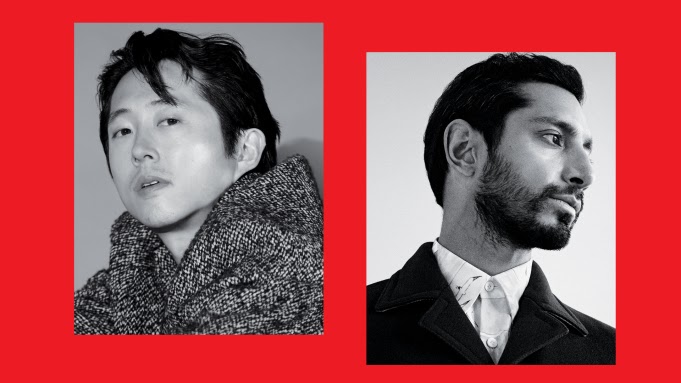The Role of Cultural Identity in the Film Industry

Image courtesy of Variety
By Caroline Morris
Hollywood is not exactly known for its diversity. Whitewashing stories of color, racial typecasting, and discrimination have been all too common in the film industry.
Now more than ever there is a push not only for a change on this front but a need for conversation about what it means to be a person of color in the world of acting. Actors Stephen Yeun and Riz Ahmed recently sat down with Vanity Fair to have the conversation about identity by discussing their recent films.
Yeun is a Korean-born actor who immigrated with his parents to the United States when he was only five years old and recently starred as Jacob in the film Minari (2020), which tells the story of a Korean-American family moving to a farm in Arkansas.
Ahmed is from a British-Pakistani family and has roots with a Muslim identity. He was the protagonist of the 2019 film Sound of Metal, wherein he played the role of Reuben, a heavy metal drummer who must find his way through life after going deaf.
One of the primary topics the two discussed was their experiences of being actors who are also people of color and their feelings on representation and identity.
“I’ve been wary of films that touch upon, on its surface, what could easily just be left at identity,” Yeun said.
This statement may seem counterintuitive when placed against the movement for greater representation for minorities in media, but Yeun expanded further. He explained that while his culture and identity as a Korean are important, he is not solely defined by that culture. He is more than his Korean identity.
Yeun said that he did not want to become “a de facto cultural ambassador, shrunken down to just one metric” of who he is.
What ultimately drew Yeun to his role in Minari was the fact that there was the representation of the Korean culture and identity, but also that at its heart was a story about the family. It was a tale that stood on a foundation of common humanity, not just race.
Ahmed related to this feeling as an actor who has played roles that portray the South-Asian population in the UK in a light of “ghettoization.” He explained the different stages he perceives to be part of the journey of proper representation.
The first stage of representation is writing and casting characters from minority groups, even though they often rely upon stereotypes. The second stage is creating culturally specific characters and plotlines that ultimately subvert stereotypes, which both men acknowledged as immensely important.
But the final stage is the “promised land.” Ahmed described it as when the characters are not defined by their cultural identity, but are “just people.” He also takes care to clarify that stage two and stage three are not mutually exclusive, because a film like Minari is culturally specific while having its root story in a universal humanity.
Ahmed’s film, Sound of Metal, focused primarily on the representation of the deaf community. While Ahmed is not deaf, he learned to speak American Sign Language for the role, worked with many deaf actors, and used auditory blockers so that he could not hear in his scenes.
This led to a discussion of language, as Minari was filmed in Korean and Sound of Metal in ASL. Ahmed explained how much he learned about communicating from his time on Sound of Metal.
Using ASL, Ahmed had to communicate with his whole body, and this change to being “viscerally and physically” connected to everything he communicated opened him up, made him more physically emotional, and taught him how to listen with his whole body. Playing the character, Reuben, ultimately changed the actor, Ahmed.
Yeun also learned about himself from his film. He related the experience of acting to the journey of his character Jacob in that they both had a need to control.
“I was desperately trying to control that scene,” Yeun said about the moment in Minari when the barn burns down.
By trying to control it, Yeun missed the true meaning of the scene he was in, and this perfectly mirrored the journey his character Jacob takes in that very scene. Yeun learned about himself and his craft as an actor through this common human struggle that he shared with Jacob.
Yeun also described how playing Jacob helped him to discover “the fullness of who I was, or who I am.” This was so powerful for him because he didn’t have this opportunity when he was younger.
As an immigrant, Yeun was constantly busy mimicking the people around him and “codeswitching,” almost becoming locked in his own mind.
The two both agreed that by being people of color in almost cultural “no man’s lands,” they constantly had to be different versions of themselves. It trained them to be actors, and now through acting in their films they are coming to find out more about themselves behind the characters.
The interview Ahmed and Yeun shared was enlightening and inspiring. It was honest about the need for representation in media, as well the need for awareness that actors and characters of color are more than just their cultural identity. But it also offered great insight into the craft of acting. Their conversation’s wide scope ultimately reflected the truth that they are more than just their ethnic backgrounds.
Yeun wrapped up the interview perfectly by explaining that the best way for actors of color to help each other is to realize that each win is not solitary, but that the wellbeing of one is the wellbeing of all.








